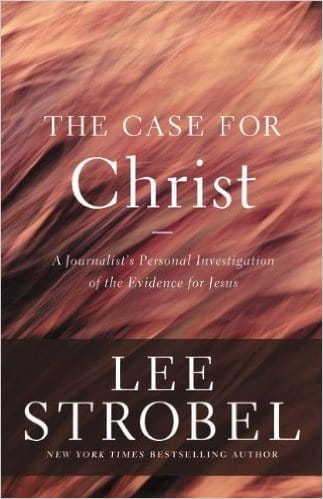Answers for an Atheist
It wasn’t a phone call from an informant that prompted me to reexamine the case for Christ. It was my wife.
Leslie stunned me in the autumn of 1979 by announcing that she had become a Christian. I rolled my eyes and braced for the worst, feeling like the victim of a bait-and-switch scam. I had married one Leslie—the fun Leslie, the carefree Leslie, the risk-taking Leslie—and now I feared she was going to turn into some sort of sexually repressed prude who would trade our upwardly mobile lifestyle for all-night prayer vigils and volunteer work in grimy soup kitchens.
Instead I was pleasantly surprised—even fascinated—by the fundamental changes in her character, her integrity, and her personal confidence. Eventually I wanted to get to the bottom of what was prompting these subtle but significant shifts in my wife’s attitudes, so I launched an all-out investigation into the facts surrounding the case for Christianity.
Setting aside my self-interest and prejudices as best I could, I read books, interviewed experts, asked questions, analyzed history, explored archaeology, studied ancient literature, and for the first time in my life picked apart the Bible verse by verse.
I plunged into the case with more vigor than with any story I had ever pursued. I applied the training I had received at Yale Law School as well as my experience as legal affairs editor of the Chicago Tribune. And over time the evidence of the world—of history, of science, of philosophy, of psychology—began to point toward the unthinkable.
It was like the James Dixon case revisited.
Judging for Yourself
Maybe you too have been basing your spiritual outlook on the evidence you’ve observed around you or gleaned long ago from books, college professors, family members, or friends. But is your conclusion really the best possible explanation for the evidence? If you were to dig deeper—to confront your preconceptions and systematically seek out proof—what would you find?
That’s what this book is about. In effect, I’m going to retrace and expand upon the spiritual journey I took for nearly two years. I’ll take you along as I interview thirteen leading scholars and authorities who have impeccable academic credentials.
I have crisscrossed the country—from Minnesota to Georgia, from Virginia to California—to elicit their expert opinions, to challenge them with the objections I had when I was a skeptic, to force them to defend their positions with solid data and cogent arguments, and to test them with the very questions that you might ask if given the opportunity.
In this quest for truth, I’ve used my experience as a legal affairs journalist to look at numerous categories of proof—eyewitness evidence, documentary evidence, corroborating evidence, rebuttal evidence, scientific evidence, psychological evidence, circumstantial evidence, and, yes, even fingerprint evidence (that sounds intriguing, doesn’t it?).
These are the same classifications that you’d encounter in a courtroom. And maybe taking a legal perspective is the best way to envision this process—with you in the role of a juror.
If you were selected for a jury in a real trial, you would be asked to affirm up front that you haven’t formed any preconceptions about the case. You would be required to vow that you would be open-minded and fair, drawing your conclusions based on the weight of the facts and not on your whims or prejudices. You would be urged to thoughtfully consider the credibility of the witnesses, carefully sift the testimony, and rigorously subject the evidence to your common sense and logic. I’m asking you to do the same thing while reading this book.
Ultimately it’s the responsibility of jurors to reach a verdict. That doesn’t mean they have one-hundred-percent certainty, because we can’t have absolute proof about virtually anything in life. In a trial, jurors are asked to weigh the evidence and come to the best possible conclusion. In other words, harkening back to the James Dixon case, which scenario fits the facts most snugly?
That’s your task. I hope you take it seriously, because there may be more than just idle curiosity hanging in the balance. If Jesus is to be believed—and I realize that may be a big if for you at this point—then nothing is more important than how you respond to him.
But who was he really? Who did he claim to be? And is there any credible evidence to back up his assertions? That’s what we’ll seek to determine as we board a flight for Denver to conduct our first interview.
 Taken from The Case for Christ by Lee Strobel. Copyright © 2016 by Lee Strobel. Used by permission of Zondervan. www.zondervan.com.
Taken from The Case for Christ by Lee Strobel. Copyright © 2016 by Lee Strobel. Used by permission of Zondervan. www.zondervan.com.
Lee Strobel was the award-winning legal editor of The Chicago Tribune and is the bestselling author of The Case for Christ, The Case for Faith, The Case for a Creator and The Case for Grace. With a journalism degree from the University of Missouri and a Master of Studies in Law degree from Yale, Lee has won four Christian Book Awards for publishing excellence and co-authored a Christian Book of the Year. He serves as Professor of Christian Thought at Houston Baptist University. Visit Lee's website at: www.leestrobel.com.
Publication date: September 13, 2016
Image courtesy: Thinkstockphotos.com